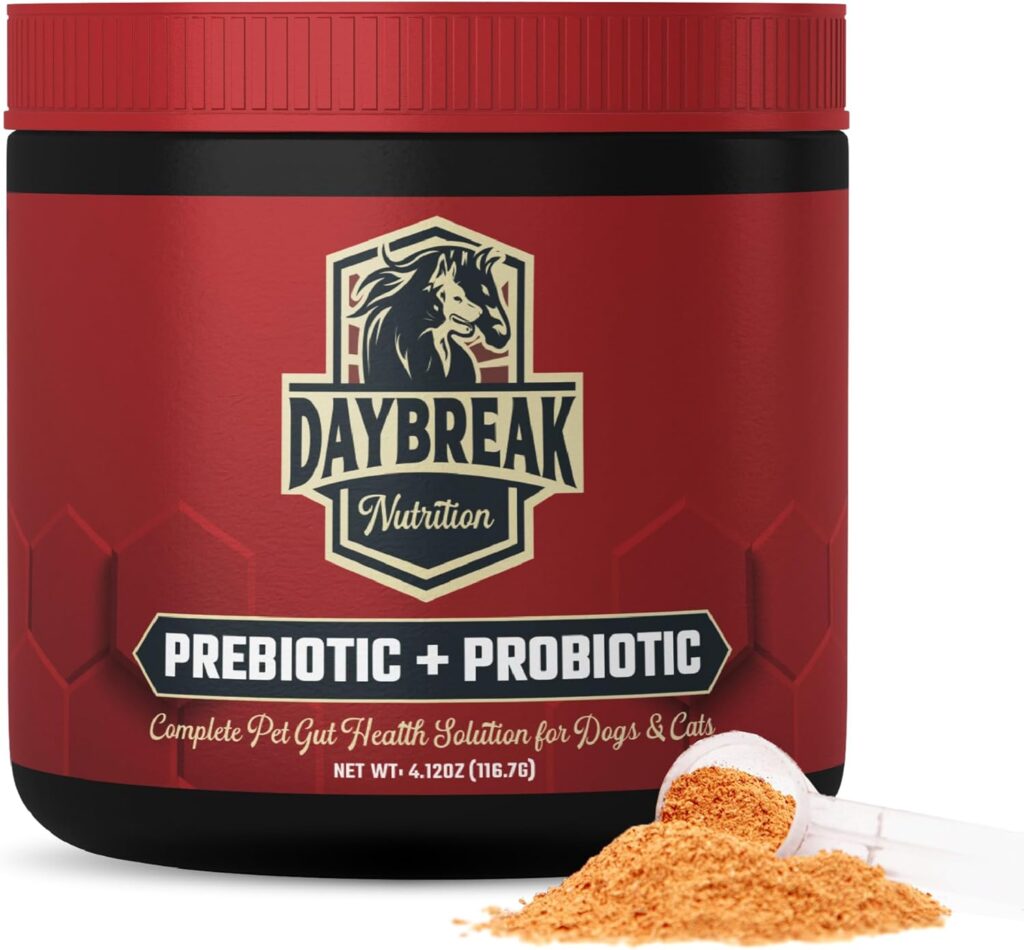Digestive issues are common in dogs, ranging from occasional upset stomachs to more serious conditions like diarrhea or constipation.
While many of these issues are temporary, ongoing digestive problems can impact your dog’s overall health and well-being.
Understanding what causes digestive issues in dogs and how to address them is essential for keeping your pet happy and healthy.
In this post, we are going to explore 5 ways to ease dog digestive issues, starting with what causes them.
Let’s dive in!
What Causes Dog Digestive Issues?
Digestive issues in dogs can be caused by a variety of factors, including:
- Dietary Changes: Sudden changes in food or feeding habits can upset your dog’s digestive system.
- Food Sensitivities or Allergies: Some dogs have sensitivities to certain ingredients in their food, such as dairy, grains, or proteins.
- Infections: Bacterial, viral, or parasitic infections can cause stomach upset, vomiting, and diarrhea.
- Stress: Just like humans, dogs can experience digestive issues due to anxiety or stress.
- Underlying Health Conditions: More serious conditions like pancreatitis, inflammatory bowel disease (IBD), or even cancer can lead to chronic digestive issues.
To manage and ease your dog’s digestive issues, here are five effective ways to support their digestive health.
5 Ways to Ease Dog Digestive Issues
1. Use a Dog Prebiotic and Probiotic Powder
One of the most effective ways to support your dog’s digestive health is by adding a prebiotic and probiotic powder to their diet.
Prebiotics are non-digestible fibers that promote the growth of beneficial bacteria in your dog’s gut, while probiotics are live bacteria that help balance the gut microbiome.
Together, these work to improve digestion, boost immunity, and alleviate issues like diarrhea or constipation.
Adding a high-quality prebiotic and probiotic powder to your dog’s food can help restore balance in their digestive system, promoting healthy digestion and overall well-being.
Out of all of the prebiotic/probiotic powders my dog has tried, Daybreak Nutrition’s new Dog Prebiotic + Probiotic is his personal favorite.
This prebiotic/probiotic is an excellent solution for dog digestive issues, providing a complete gut health formula with 6 billion CFU per serving.
This synbiotic blend combines 8 premium probiotic strains, including Enterococcus Faecium, which are specially selected for optimal digestion in pets.
The addition of natural prebiotics from flaxseed and pumpkin nourishes beneficial bacteria, promoting a balanced gut microbiome and easing symptoms like gas and stomach sensitivity.
Simply follow the directions on the back and you’re good to go!
2. Feed a Balanced and Easily Digestible Diet
Choosing the right food for your dog is essential for managing digestive issues.
Opt for a balanced, high-quality diet that’s appropriate for your dog’s age, breed, and specific digestive needs.
If your dog has food sensitivities, consider feeding them a limited-ingredient diet that avoids common allergens.
Additionally, foods with easily digestible proteins, such as chicken or turkey, can be gentler on your dog’s digestive system.
3. Provide Plenty of Fresh Water
Dehydration can exacerbate digestive issues, especially if your dog is experiencing diarrhea or vomiting.
Ensure that your dog has access to fresh, clean water at all times.
Adequate hydration supports healthy digestion and helps prevent constipation.
If your dog is reluctant to drink, try offering water with a splash of low-sodium chicken broth to make it more enticing.
4. Use Digestive Enzymes
Digestive enzymes help break down food more efficiently, supporting the digestive process.
Some dogs may benefit from a digestive enzyme supplement, especially if they are struggling to digest certain foods or have a weakened digestive system.
These enzymes can aid in nutrient absorption and reduce symptoms like bloating, gas, and indigestion.
Consult your veterinarian before starting digestive enzyme supplements to ensure they’re appropriate for your dog’s specific needs.
5. Reduce Stress and Anxiety
Stress and anxiety can wreak havoc on your dog’s digestive system, leading to issues such as diarrhea, vomiting, or loss of appetite.
Identifying and managing stressors in your dog’s environment is crucial for preventing digestive problems.
Providing a calm, consistent routine, offering plenty of exercise, and using calming products like pheromone diffusers or anxiety wraps can help reduce stress levels.
If your dog’s digestive issues are stress-related, addressing the underlying cause of their anxiety can provide long-term relief.
Support Dog Digestive Issues
Digestive issues in dogs can be uncomfortable and frustrating, but with the right care and attention, most issues can be managed effectively.
By incorporating a dog prebiotic and probiotic powder, feeding a balanced diet, providing hydration, using digestive enzymes, and managing stress, you can support your dog’s digestive health and help them feel better.
Always consult with a veterinarian if your dog’s digestive issues persist or if you notice more serious symptoms, as they could indicate an underlying health condition. With the right support, your dog can enjoy a healthy, happy digestive system.
Thank you for reading!
Affiliate Disclosure
Some of the links on this site are affiliate links. This means that if you click on the link and purchase the item, we may receive an affiliate commission at no extra cost to you. I only recommend products or services that I believe will add value to my readers, however some (not all) do pay us to be on this blog. Your support and theirs helps keep this blog running, and I genuinely appreciate it.
Medical Disclaimer
The information provided on this website is for educational purposes only and is not intended as medical advice. The content shared here is not written by a licensed veterinarian, and it should not be used as a substitute for professional veterinary diagnosis, treatment, or advice. Always consult with your veterinarian or other qualified pet healthcare provider before starting any new treatment or making changes to your pet’s health regimen.

